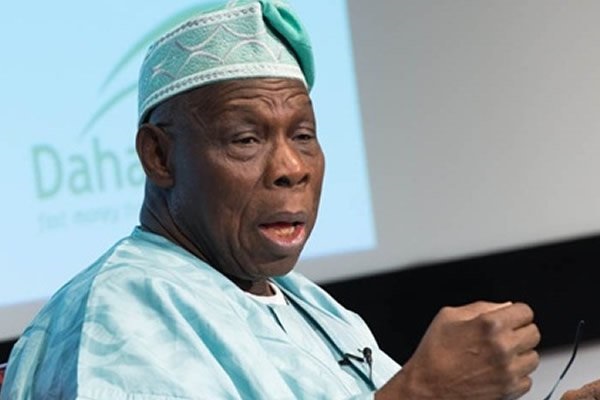- Obasanjo also accused political elites of engaging in state capture, a form of corruption where powerful groups manipulate national policies, laws, and resources for personal gain.
Former President, Olusegun Obasanjo, has expressed concern over the quality of characters and personalities managing the affairs of Nigeria, stressing that the nation’s problems stem from dearth of charismatic, visionary and selfless leaders.
Obasanjo voiced his worries over the state of the nation during his keynote address at the Chinua Achebe Leadership Forum held at Yale University, New Haven, Connecticut, USA.
Delivering a lecture titled “Leadership Failure and State Capture in Nigeria”, Obasanjo alluded to Chinua Achebe’s 1983 book “The Trouble with Nigeria”, reiterating that the nation’s challenges are rooted in failure of leadership.
He dismissed assertion that cultural or environmental dynamics are to blame, emphasizing instead the inability of leaders to rise to the occasion.
Obasanjo also accused political elites of engaging in state capture, a form of corruption where powerful groups manipulate national policies, laws, and resources for personal gain. He highlighted the sale of national assets at undervalued prices and the undue influence of interest groups in shaping Nigeria’s economic and political landscape.
“State capture is one of the most pervasive forms of corruption,” Obasanjo explained. “What is happening in Nigeria – right before our eyes – is state capture, where public institutions are subject to undue influence from vested interests.”
The former president criticized the intertwining of business and political elites through family ties, lobbying, and vote-buying, which he argued prioritizes private gain over public welfare. He warned of the long-term implications on education, healthcare, infrastructure, and economic development.
Obasanjo, however, asserted that Nigeria’s challenges can be overcome, if the nation’s leadership embraces accountability and reforms.
In honoring Chinua Achebe, Obasanjo praised the late literary icon for his lasting contributions to Nigerian society, describing him as “a great and distinguished Nigerian.”
The speech has sparked debate about Nigeria’s current trajectory and the responsibility of its leaders to address deep-seated challenges.
